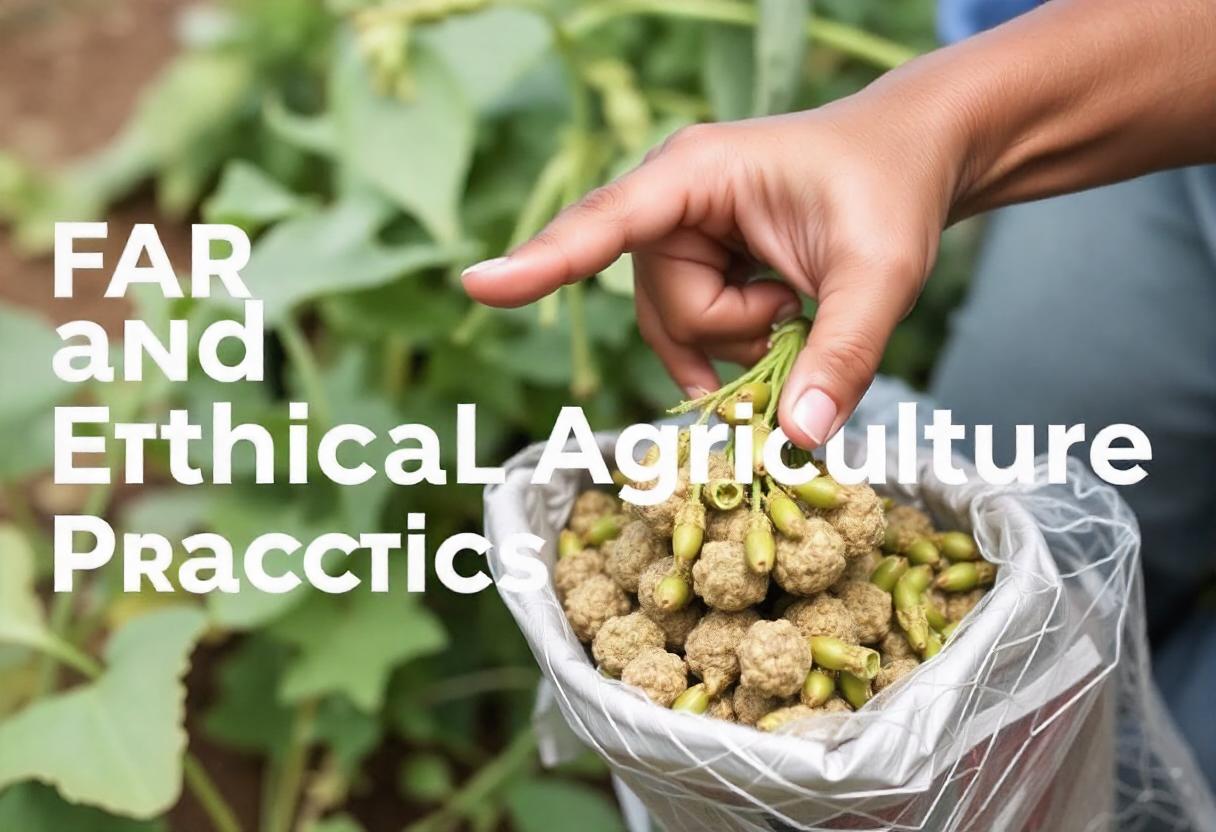
What is Fair Trade?
Fair Trade is a global movement aimed at ensuring better prices, decent working conditions, and fair terms for farmers and workers in developing countries. The goal is to support sustainable development by providing producers with a platform where they can thrive while promoting environmental stewardship. Fair Trade also encourages ethical consumerism, where buyers are informed about the origins of the products they purchase and the impact their choices have on the communities involved in production.
Principles of Fair Trade
Fair Trade operates on a set of principles designed to empower producers and promote social and economic equity. These principles include:
- Fair Prices and Wages: Producers receive a guaranteed minimum price for their goods, helping to alleviate poverty and ensure a stable income.
- Safe Working Conditions: Workers are entitled to fair working hours, a safe environment, and access to basic health and safety measures.
- No Child or Forced Labor: Fair Trade certification ensures that child labor and forced labor are not part of the supply chain.
- Environmental Sustainability: Fair Trade encourages environmentally friendly farming methods that promote long-term sustainability and biodiversity.
Ethical Agriculture Practices
Ethical agriculture practices emphasize the importance of sustainable farming methods, animal welfare, and the fair treatment of workers. These practices are designed to create a balance between agricultural productivity and environmental conservation, ensuring that the land remains fertile and the community thrives.
Sustainable Farming Techniques
Sustainable farming techniques are a cornerstone of ethical agriculture. These methods aim to protect the environment, reduce carbon emissions, and minimize the use of harmful chemicals. Examples of sustainable farming practices include:
- Crop Rotation: Rotating different crops in a particular field to maintain soil fertility and prevent diseases.
- Organic Farming: Avoiding synthetic pesticides and fertilizers to promote biodiversity and protect the ecosystem.
- Agroforestry: Integrating trees into farming systems to enhance soil quality, provide shade, and increase biodiversity.
Animal Welfare in Ethical Agriculture
In ethical agriculture, animal welfare is a significant concern. Farmers are encouraged to treat animals humanely, ensuring they have access to proper nutrition, clean living environments, and freedom from unnecessary suffering. Ethical practices include:
- Free-Range Farming: Allowing animals to roam freely in their natural habitats rather than keeping them in confined spaces.
- Organic Feed: Providing animals with organic, non-GMO feed to improve their health and the quality of their products.
- Minimal Use of Antibiotics: Limiting the use of antibiotics to prevent drug resistance and promote animal welfare.
Social Justice and Fair Labor Practices
Ethical agriculture also involves addressing social justice issues, particularly in labor practices. Workers in the agricultural sector, especially in developing countries, are often subjected to poor working conditions, low wages, and exploitation. Fair Trade and ethical agriculture initiatives aim to combat these issues by:
- Fair Compensation: Ensuring that farmers and workers receive fair wages for their labor.
- Safe Working Conditions: Implementing safety standards and regulations that protect workers from hazardous conditions.
- Empowering Women and Marginalized Groups: Promoting gender equality and empowering marginalized communities within the agricultural workforce.
Environmental Benefits of Fair Trade and Ethical Agriculture
Fair Trade and ethical agriculture practices go beyond just social and economic impacts; they also play a vital role in environmental conservation. These practices promote the use of organic and sustainable farming techniques that minimize soil degradation, reduce water consumption, and lower greenhouse gas emissions. Additionally, many Fair Trade organizations work with farmers to implement renewable energy solutions and encourage reforestation efforts.
Certifications and Labels for Fair Trade and Ethical Agriculture
Certifications and labels are crucial for consumers who want to support Fair Trade and ethical agriculture practices. These certifications help ensure that products meet specific standards related to fair labor, environmental sustainability, and social responsibility. Some of the most recognized certifications include:
- Fairtrade International: A global certification that ensures farmers receive fair wages and work in safe conditions.
- Rainforest Alliance: A certification focused on sustainable farming practices and environmental protection.
- Certified Organic: Ensures that products are grown without synthetic pesticides, fertilizers, or genetically modified organisms (GMOs).